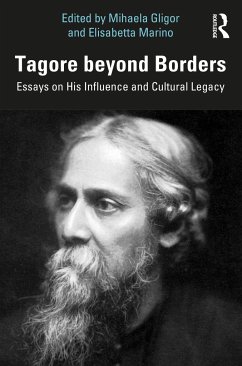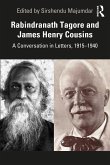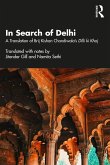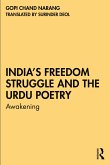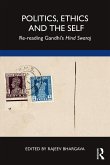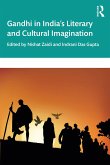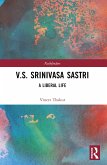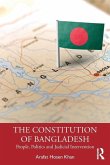This book looks at Rabindranath Tagore's creative art, social commitment, literary and artistic representation and his unique legacy in the cultural history of modern India - as a blend of the quintessentially Indian and the liberal universalist.
Tagore's genius, which he expressed through his poetry, songs, paintings, drama and philosophy, is celebrated across the globe. In 1913, he was awarded the Nobel Prize for Literature for his volume of poetry, Gitanjali (Song Offerings), making him the first Nobel laureate from Asia. This volume of essays celebrates his intellectual engagements and his incredible legacy by discussing the diverse ways in which his works have been reinterpreted, adapted and translated over the years. It analyses his perspectives on modernity, nationalism, liberation, education, post-colonialism and translatability and their relevance today. The leitmotif is a Tagore who, while imaginable as made possible only within the Indian tradition, eludes attempts aimed at identification with a national culture and remains a "cosmopolitan" in the best sense of the term.
This volume will be of interest to readers and researchers in the fields of literature, philosophy, political science, cultural studies, Asian studies, South Asian studies and Tagore studies. Fans of Tagore will also find this an interesting read as it presents many little knows aspects of the poet's work.
Tagore's genius, which he expressed through his poetry, songs, paintings, drama and philosophy, is celebrated across the globe. In 1913, he was awarded the Nobel Prize for Literature for his volume of poetry, Gitanjali (Song Offerings), making him the first Nobel laureate from Asia. This volume of essays celebrates his intellectual engagements and his incredible legacy by discussing the diverse ways in which his works have been reinterpreted, adapted and translated over the years. It analyses his perspectives on modernity, nationalism, liberation, education, post-colonialism and translatability and their relevance today. The leitmotif is a Tagore who, while imaginable as made possible only within the Indian tradition, eludes attempts aimed at identification with a national culture and remains a "cosmopolitan" in the best sense of the term.
This volume will be of interest to readers and researchers in the fields of literature, philosophy, political science, cultural studies, Asian studies, South Asian studies and Tagore studies. Fans of Tagore will also find this an interesting read as it presents many little knows aspects of the poet's work.
"Eighty years have passed since Rabindranath Tagore's death and the Bengali writer never cease to inspire people, not just in his homeland but beyond its confines. Tagore was the first truly global figure of India and his writings as a poet, prose-writer and cultural thinker are nowadays more and more scrutinised in a postcolonial light. This volume with essays on how Tagore's poetry, religious or educational ideas, short stories, dialogue with leading intellectuals, travel writing reached or had the potential to reach beyond Bengal, is an important addition to an ever better understanding of one of the finest minds of modern India."
Imre Bangha, University of Oxford, UK
"Rabindranath Tagore has always travelled, and in his situated universalism he continues to go beyond 'narrow domestic walls.' This is an excellent collection of papers on his powerful and increasingly pertinent legacy."
Tabish Khair, Aarhus University, Denmark
"An extraordinary compendium that sheds new light on an extraordinary man, his times, and the profound impact he had on Indian arts, literary culture, and moral imagination. "
Namit Arora, author of Indians: A brief history of a Civilization
Imre Bangha, University of Oxford, UK
"Rabindranath Tagore has always travelled, and in his situated universalism he continues to go beyond 'narrow domestic walls.' This is an excellent collection of papers on his powerful and increasingly pertinent legacy."
Tabish Khair, Aarhus University, Denmark
"An extraordinary compendium that sheds new light on an extraordinary man, his times, and the profound impact he had on Indian arts, literary culture, and moral imagination. "
Namit Arora, author of Indians: A brief history of a Civilization

